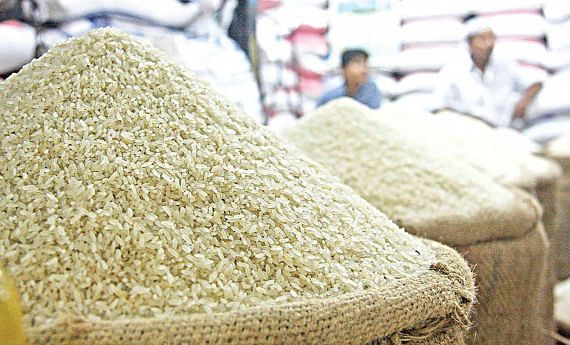Jakarta, Indonesia Sentinel — Malaysia has expressed its interest to import rice from Indonesia. However, Indonesia Ministry of Agriculture (Kementan) has declined the request, citing the need to safeguard domestic food security.
The statement was made by Indonesian Agriculture Minister Amran Sulaiman during a bilateral meeting with his Malaysian counterpart, YB Datuk Seri Haji Mohamad Bin Sabu, in Jakarta on Tuesday.
Mohamad confirmed that Malaysia had expressed interest in importing rice from Indonesia, but acknowledged that the proposal could not move forward at this time.
“Earlier, Malaysia asked if they could import rice from Indonesia,” Minister Amran said after the meeting. “I explained that for now, we are focusing on maintaining our domestic stock.”
Amran emphasized that Indonesia’s current priority is to secure national food resilience and achieve full self-sufficiency before considering rice exports.
“National food security is our top priority,” Amran stated. “Only once that is achieved can we consider extending support to friendly nations.”
During the meeting, Minister Mohamad praised Indonesia’s agricultural advancements and said Malaysia hopes to learn from its neighbor’s success.
“We are interested in Indonesia’s advanced agricultural technologies,” Mohamad said. “Their yield can reach up to 12 or 13 tons per hectare, with an average of 7 tons — much higher than what we’re currently producing.”
He added that Malaysia is keen on strengthening collaboration with Indonesia, particularly in agricultural research, innovation, and human resource development. Malaysia’s agricultural research institute, MARDI, is reportedly ready to work more closely with Indonesia’s Ministry of Agriculture.
“Indonesia and Malaysia are close neighbors, like elder and younger siblings,” Mohamad said. “We see many strengths in Indonesia that we’d like to learn from.”
Read Also:
Indonesia to Increased U.S. Imports, Assured Won’t Undermine Food and Energy Self-Sufficiency Goals
The Malaysian minister also stressed the importance of regional cooperation within ASEAN amid global economic uncertainties, including shifting trade dynamics and tariffs imposed by global powers.
“We need to enhance regional unity, especially in light of unpredictable tariff policies being implemented by major countries like the United States,” he said.
Amran welcomed the cooperation and suggested it could involve joint training, field demonstrations, and collaborative research.
Indonesia’s boost in rice production, Amran noted, has been driven by digital agriculture, mechanization, improved seed varieties, and strategic policy support under President Prabowo Subianto.
“We are open to sharing our experiences and technology with friendly nations like Malaysia,” he said. “The stronger our region becomes in food production, the more resilient we are to global crises.”
(Raidi/Agung)


























